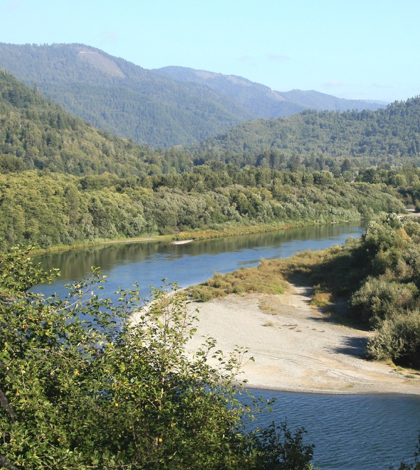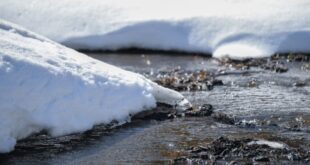Ichthyophthirius multifillis – or “ich” – has been detected in fish in limited parts of the Klamath River on the Yurok Reservation. Ich is a deadly parasite and killed some 35,000 adult Chinook salmon and steelhead fish in 2002 on the Klamath. This year’s occurrence marks the third time ich has been found on the Klamath River since the deadly 2002 outbreak.
On Wednesday, the U.S. Bureau of Reclamation announced they will release additional water from the Trinity Reservoir for the lower Klamath River in an effort to help protect the returning fall run adult Chinook salmon. Officials said they would triple the amount of water from the Lewistown Dam into the Trinity River. The Trinity flows into the Klamath River.
On Thursday, water from the Lewistown Dam was increased from a norm of 450 cubic-feet per second (cfs) to some 1,300 cfs and will continue into late September. Reclamation, which operates Lewistown Dam, will use real time monitoring and adaptive management will help guide implementation of supplemental flow releases.
The Yurok Tribe has said they will review every possibility to avoid a repeat of 2002’s scenario.
“We take this threat to our fish very seriously, and we’re looking at every option to protect our fish,” said Yurok Tribe Chairman Thomas P. O’Rourke. “We don’t want to go through another catastrophe like the fish kill in 2002, and will do anything we can to avoid that outcome this year.”
Per Michael Belchik, fisheries biologist with the Yurok Tribe, a small number of adult salmon have become infected in extremely warm water in the Klamath and then became trapped in a small refuge where the disease can be easily spread. Higher water flows and cooler water from the Trinity are intended to flush the lower Klamath thereby reducing crowding throughout the fish.
Federal, state and tribal managers are working cooperatively to determine the extent of the disease and are testing and sampling salmon in various parts of the rivers and dams.
“Well, it’s definitely not good news,” said Belchik. “Right now we’re trying to figure out the geographic extent of the outbreak.”
But, in spite of the cooperation between government and tribal officials, not everyone is pleased with increased water release to aid in saving the adult Chinook salmon. Additional water sent into the Trinity River results in less water for urbans areas and farms in the Sacramento and San Joaquin valleys. Less water in the Trinity also means less hydropower is generated.
“It’s disheartening how our supply reliability continues to erode,” said David Coxey, Bella Vista Water District general manager in Redding.
 California Water News Daily Your Source For Water News in California
California Water News Daily Your Source For Water News in California


